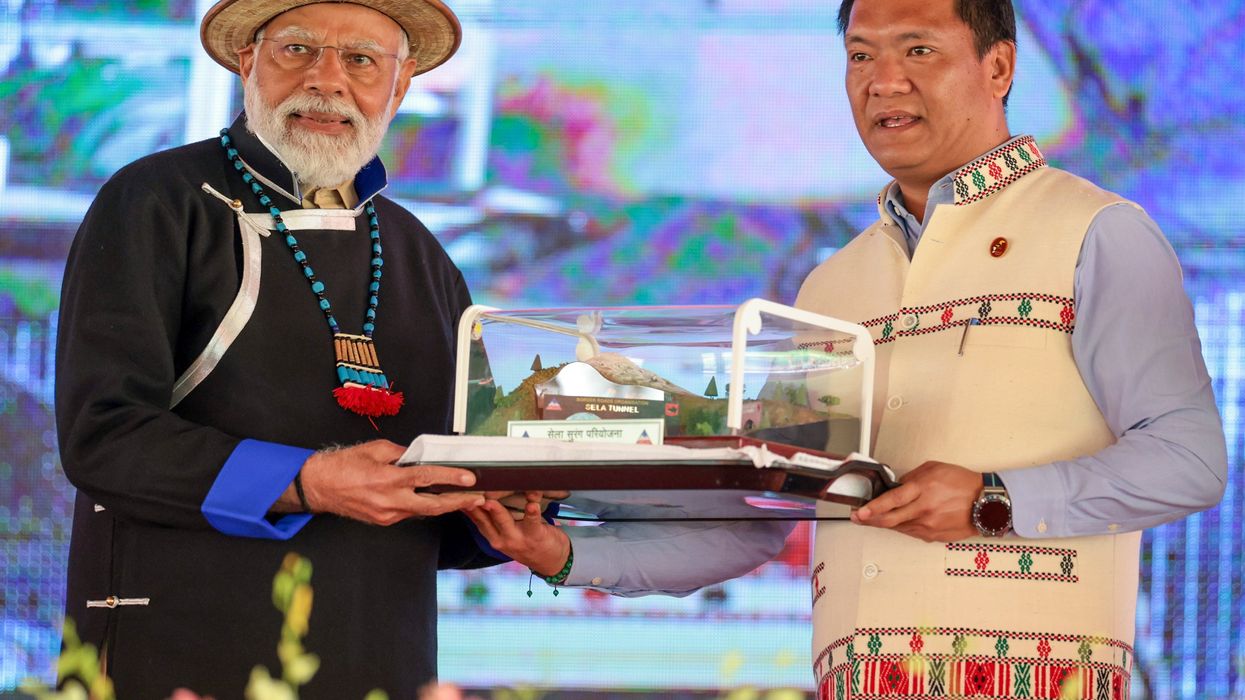INDIA on Tuesday (12) rejected Chinese objections to prime minister Narendra Modi's weekend visit to Arunachal Pradesh, saying the northeastern border state has always been "an integral and inalienable part of India".
The Indian foreign ministry's comments came a day after Chinese foreign ministry spokesperson Wang Wenbin said Beijing was firmly opposed to Modi's activities in the region and has lodged a diplomatic protest with India.
Modi visited Arunachal Pradesh on Saturday (9) to inaugurate infrastructure projects, including a tunnel that will provide all-weather connectivity to the strategically located border area of Tawang.
The tunnel is expected to ensure faster and smoother movement of troops in the frontier region.
China claims Arunachal Pradesh to be a part of southern Tibet. New Delhi rejects the claim, saying Arunachal Pradesh has always been a part of India.
"Indian leaders visit Arunachal Pradesh from time to time, as they visit other states of India. Objecting to such visits or India's developmental projects does not stand to reason," said Randhir Jaiswal, India's foreign ministry spokesperson.
"Further, it will not change the reality that the state of Arunachal Pradesh was, is, and will always be an integral and inalienable part of India."
The nuclear-armed neighbours share a 3,000-km (1,860 mile) frontier, much of it poorly demarcated. At least 20 Indian soldiers and four Chinese troops were killed in 2020 in clashes elsewhere along their border in the western Himalayas.
Both militaries have fortified positions and deployed extra troops and equipment along the border since, having been uneasy neighbours for decades after a bloody border war in 1962.
Last year, China ratcheted up tensions with India by giving Chinese names to 11 locations in Arunachal Pradesh.
While speaking at an event on Monday (11), India's external affairs minister S Jaishankar said that tension over last four years not served either India or China well.
He said that India remains committed to finding a "fair and reasonable outcome" but one that is respectful of agreements and recognises the Line of Actual Control.
The minister also said that India "never closed doors to talking to Pakistan" but the terrorism issue should be "fair, square at the centre of the conversation".
(Agencies)





